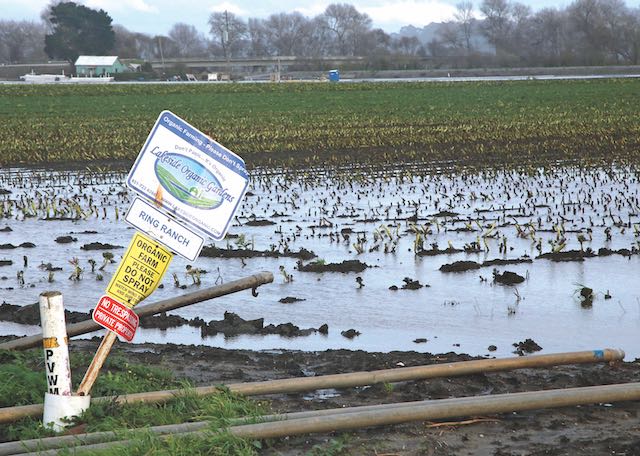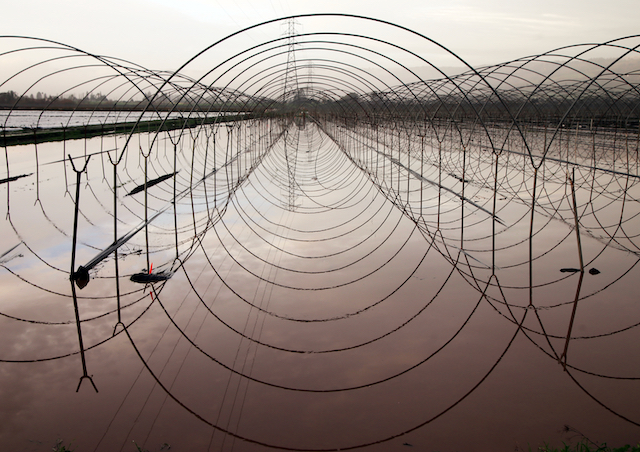
PAJARO VALLEY—As the intense series of atmospheric river storms wane, many farmers and agriculture workers across the state of California are left reeling from flood impacts.
Many streams, creeks and major rivers in Northern and Central California overflowed their banks during the deluge, sending water rushing into agricultural fields—including some that had already been planted.
In Monterey County, the Department of Emergency Management has estimated that the industry has suffered losses of between $40 and $50 million.
In Santa Cruz County, estimates have not yet been released, but farmers have reported major losses in crops as well as destroyed land.
Strawberries have in particular been hit hard, with a number of large and small growers alike being waterlogged for days. Jeff Cardinale, director of communications for the California Strawberry Commission, reported that in the Pajaro Valley, berry farmers are still in the process of assessing the overall damage.
“There is no doubt the series of storms have impacted farmers in the Watsonville area,” Cardinale said. “While farmers assess their operations and monitor any storm damage, [we are] assisting them with any next steps they need to take as a result of the storms.”
At Lakeside Organic Gardens, the country’s largest grower of organic produce, a number of vegetable fields in the Pajaro Valley were destroyed when the Corralitos Creek and College Lake overflowed their banks. Crops of newly planted baby broccoli, bok choy, parsley and more are now a total loss.
“When things get flooded, you can’t really harvest them because of food safety,” said Lakeside owner and farmer Dick Peixoto. “Even if you look at it and think, it looks good, you still can’t harvest because you don’t know what’s been in the flood waters.”

Peixoto said that as a vegetable grower, winter is usually the time they plant for Spring harvest. But without a break in the rain, it’s been close to impossible.
“We haven’t been able to plant anything since Christmas,” he said. “This is the longest spell of wet weather we’ve ever seen. If we can even get three days of dry weather we can go in and plant. But we haven’t been able to.”
Agricultural workers have also been hit hard by the flooding. With fields flooded and crops destroyed, they are unable to work.
“We usually try to give them work all year long,” Peixoto said. “They rely on it. So it’s been really tough on them. They’re willing to work in the rain but we couldn’t even get the tractors in the field.”
With the rain finally backing off this week, farmers have been granted a reprieve. But there is a lot to clean up—and the effects of the flooding will be felt in the coming months.
“This will be a big issue for all of us come April and May, when those crops we should be planting now will need to be harvested,” Peixoto said. “We’ve been living with a drought, but we really didn’t need to get all the rain at once.”












